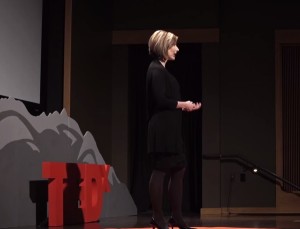Mar
10
2015

I want the public to fully understand what naturopaths are, because I don’t think that they do. This is a situation common to many cults and pseudosciences – there is a superficial layer of reality that represents the public face of the group, largely crafted for marketing purposes, and then there is the deeper layer of utter nonsense that most people don’t see. Homeopathy is a great example. Unless you are a skeptic or true believer, chances are you think homeopathy is some form of herbalism, rather than the magic potions that it is.
Naturopathy is similar. The superficial marketing level presentation of naturopathy is that its practitioners are medically trained and emphasize nutrition, lifestyle, and natural remedies. I attended a lecture at Yale by a naturopath who summarized their training as, “Everything you get in medical school, plus nutrition.” (The first claim is patently wrong, and the second falsely assumes that medical training does not include nutrition.)
The marketing, however, is working. After a recent article about naturopathy we posted on our Facebook page we had this comment:
How can you stop believing whole food, herbs, sunshine, fresh air, good water, exercise and human touch (which are the foundation of naturopathic medicine) are worse for you than allopathic poisons?
Marketing propaganda successfully internalized.
Continue Reading »
Mar
09
2015
Last year David Gorski and I published an article in which we argue that it is a waste of resources and ultimately counterproductive to conduct clinical trials of a treatment that is so scientifically implausible it might as well be “magic.” Homeopathy, for example, fits squarely into this category. The alternative medicine (CAM) community did not respond favorably to our arguments.
A recent article by Sunita Vohra and Heather Boon directly critiques our article. Vohra and Boon are both involved in homeopathy research, so this is no surprise. In their brief article they essentially repeat the standard CAM talking points about scientific research, without really countering the position that David and I have described. In their article, in my opinion, they demonstrate the utter intellectual bankruptcy of the CAM position. They repeat points that have been deconstructed years ago, without ever addressing the counterpoints.
The core of the disagreement is about the relative role of various kinds of scientific research in evaluating medical therapies. The position of science-based medicine (SBM) is that rigorous efficacy trials are required to truly know if a treatment is safe and effective (that aspect of our position we share with standard evidence-based medicine or EBM). Further, this clinical evidence must be put into the context of all the rest of science, right down to basic laws of physics, summarized as an overall scientific judgement about the plausibility of the treatment. This basic science plausibility should also be used to guide the expenditure of our limited resources in conducting expensive and resource-draining clinical trials. At the same time, solid evidence from clinical trials can inform basic science by suggesting possible biological mechanisms.
Continue Reading »
Mar
03
2015
 In a recent TEDx talk, Sharyl Attkisson nicely demonstrates the deep problem with astroturfing, although part of her demonstration was inadvertent. The problem is actually deeper than she stated, because she herself has fallen victim to part of the deception.
In a recent TEDx talk, Sharyl Attkisson nicely demonstrates the deep problem with astroturfing, although part of her demonstration was inadvertent. The problem is actually deeper than she stated, because she herself has fallen victim to part of the deception.
Astroturfing is essentially fake grassroots activism. Companies and special interests create non-profits, Facebook pages, social media persona, write letters to the editor, and essentially exploit social and traditional media to create the false impression that there is a grassroots movement supporting some issue. The key to astroturfing is that they conceal who is truly behind these fronts.
Attkisson, a journalist for CBS news, points to several examples in which pharmaceutical companies, for example, secretly promote their drug and marginalize criticism. She correctly points out how campaigns of doubt and confusion can work, by generating so much controversy that the public loses confidence in the science (and in fact science itself) and throws the baby out with the bath water.
This is all part of the same phenomenon I discussed in yesterday’s post about Google ranking websites by their factual accuracy. There is power in information, and there is essentially a war going on over control of information, which increasingly is fought on the battleground of the internet and social media.
Continue Reading »
Mar
02
2015
 I like this idea, but it is certainly bold and needs some careful thought. Google wants to rank websites according to how trustworthy their factual statements are.
I like this idea, but it is certainly bold and needs some careful thought. Google wants to rank websites according to how trustworthy their factual statements are.
Google undoubtedly is a cornerstone of the internet, which itself is now a cornerstone of our civilization. We are rapidly evolving to having a worldwide network of shared human knowledge and communication. The internet is now the dominant medium of human ideas.
Google is not just a search engine – it is the dominant portal to this information. This makes Google rank a vital statistic for any website. In fact, there is an entire industry, search engine optimization (SEO), dedicated to improving one’s Google ranking.
Google’s big innovation, and the one that launched them to the top of the heap, was to rank websites according to the number and quality of incoming links. This turned out to be a useful proxy, and serves to reward users with a helpful ranking of the websites they are searching for. Specifically, it is not easy to game the system. You can’t boost your Google rank simply by repeating search terms in the coding. In fact, I have a couple friends at Google and they tell me that Google is constantly tweaking their algorithm specifically to make SEO ineffective. SEO is an attempt to game Google’s ranking algorithm, and Google doesn’t want that. They want the truly most valuable and appropriate sites to float to the top.
Continue Reading »









